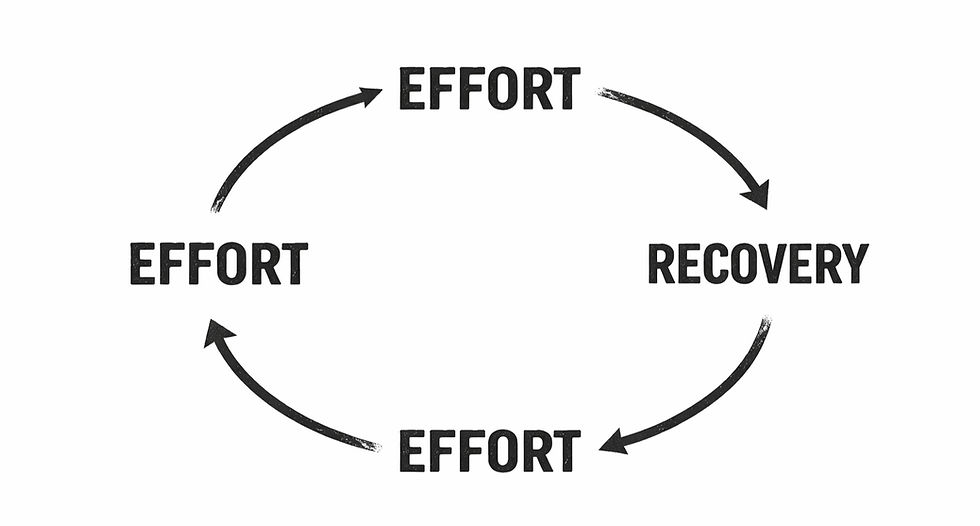Psychological Theories: The Power to Change Your Life & Your Mind
- Lauren Lee
- Nov 14, 2025
- 3 min read

Welcome to today's blog on Psychological Theories! Today, we will approach our learning of the complexities of our mood, mind, and behavior from powerful psychological concepts that are essential in shifting the way we think, feel, and act in our daily lives.
Mood
Have you ever smiled and felt your mood visibly brighten along with it? This is not simply a coincidence. According to the National Institute of Health, the Facial Feedback Hypothesis is rooted in the idea that facial expressions not only express emotion but influence our emotional experience as well.
Numerous studies have been conducted to test this hypothesis in which participants were instructed to make specific facial expressions (i.e. sad, happy, etc.) and report the level of the respective emotion they felt. Results have repeatedly demonstrated that the sensory feedback from their facial muscles to the brain triggered or intensified the corresponding emotion.
The takeaway? Smile, even when you don't feel like it! The very shift of your facial expression can boost your mood.
Mind
"If you believe in yourself, anything is possible."
Though at times it may feel like "belief in oneself" is simply not enough when it comes to conquering seemingly insurmountable tasks, this quote is fortified by Albert Bandura's psychological theory of Self-Efficacy.
Bandura, one of the most influential cognitive psychologists in the world, introduced the concept of self-efficacy as belief in one's own ability to succeed in a specific situation or task.
Developing self-efficacy is controlled by 4 main factors:
Mastering experiences - Successfully performing tasks builds confidence for future attempts.
Vicarious experiences - Watching others succeed increases belief in one's own success.
Verbal Persuasion - Receiving encouragement from people confident in one's abilities boosts their belief.
Physiological and affective states - The way an individual interprets physical/emotional reactions, like stress or anxiety, impacts self-belief (ex: fast heartbeat can be viewed as nerves or excitement).
The Theory of Self-Efficacy is vital in recognizing your capabilities, goal-setting, problem-solving, and motivation. Having a strong belief in yourself will allow you to approach challenges with confidence.
Behavior
Cognitive Dissonance can be defined as "the mental discomfort that results from holding two conflicting beliefs, values, or attitudes" (Cherry, 2025). We all experience this-it is only natural: knowing you should be studying for an upcoming test but procrastinating instead, promising to not spend any more money but buying new clothes, or telling a lie despite wanting to be honest.
We, as humans, desire for consistency and comfort in our attitudes and perceptions. So when we experience conflict, we cannot help but feel unpleasant or uneasy inside. This causes us to seek out justification or new information to validate our behavior, a form of rationalization that can lead to immense harm on others and ourselves.
However, approaching this mechanism of cognitive dissonance in a healthy perspective is attainable for all individuals.
Being mindful of cognitive inconsistencies to refrain from immediately taking on a judgemental stance or feeling conflict, and rather, finding acceptance in our observations.
Challenging beliefs: gaining deeper understanding of our personal beliefs and values can allow us to act in ways that better align with them.
Reflecting upon our behavior and the reasons behind it can help us reduce feelings of dissonance and provide justification that is safe and healthy.
Sources
Söderkvist, S., Ohlén, K., & Dimberg, U. (2017). How the Experience of Emotion is Modulated by Facial Feedback. Journal of Nonverbal Behavior, 42(1), 129–151. https://doi.org/10.1007/s10919-017-0264-1
Artino, A. R. (2012). Academic self-efficacy: From educational theory to instructional practice. Perspectives on Medical Education, 1(2), 76–85. https://doi.org/10.1007/s40037-012-0012-5
Cherry, K. (2025, January 27). What is cognitive dissonance? Verywell Mind. https://www.verywellmind.com/what-is-cognitive-dissonance-2795012





Comments